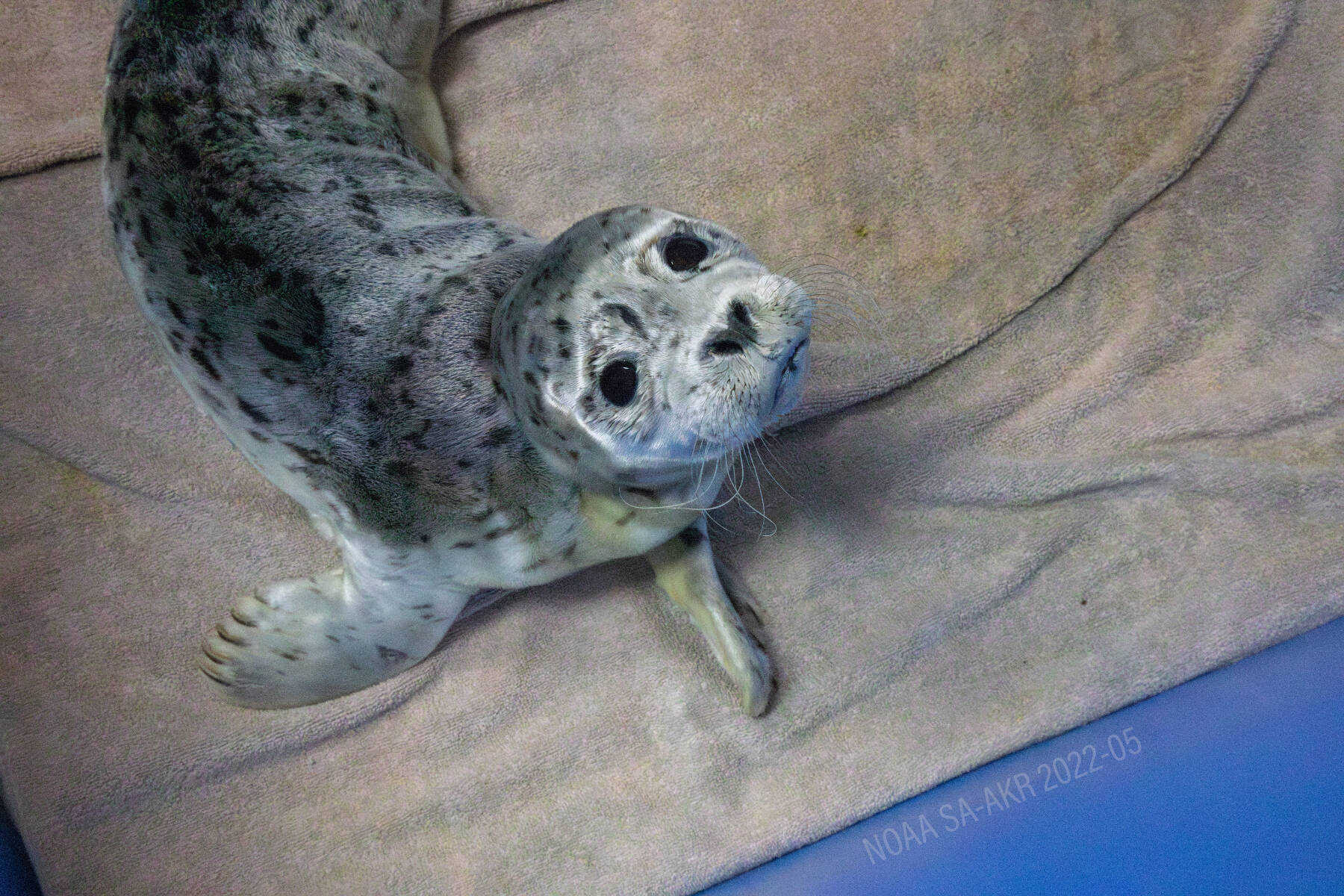Six harbor seal pups are now under the care of the Alaska SeaLife Center Wildlife Response Program. Two new patients were admitted last month, according to a July 1 press release — a male from Naknek, admitted on June 17, and a female from Wrangell on June 22.
The first pup was spotted by locals in Naknek and reported to the U.S. Fish and Wildlife Service National Wildlife Refuge in King Salmon, who then contacted the center, the release states. The National Oceanic and Atmospheric Administration authorized pickup after photos showed that the male pup was in poor condition.
Rescue efforts were complicated, however, when the pup returned to the water and became entangled in a net before responders arrived. Locals were able to free the pup, who was then transferred to a USFWS biologist and driven to a local airport for a flight to Anchorage. Finally, NOAA staff coordinated the final leg of the pup’s journey to the SeaLife Center for care.
The second pup was spotted hauled out on a rocky beach within the city limits of Wrangell, where seals are not typically seen, according to Monday’s release. Two concerned local beach walkers reached out to NOAA, who approved rescue efforts as the seal’s skinny condition suggested prolonged separation from its mother.
A flight could not be coordinated that same night, so the observers mobilized help from fellow rescue members and were able to give the female pup medical treatment overnight. Transportation to Anchorage was arranged the following day, whereupon the seal arrived safely and was then transported to the SeaLife Center.
Both pups were found to be underweight, dehydrated and malnourished, though additional complications required veterinary staff to take quick action. A dangerously high body temperature was the most immediate concern for the male Naknek pup, while the female Wrangell pup arrived with persistent tremors due to a lack of nourishment.
The Wildlife Response Program team is currently providing initial stabilizing treatments to both patients and keeping a close watch to ensure the best possible chance of survival, the release states.
For more information on ASLC and updates on the wildlife response patients, visit www.facebook.com/AlaskaSeaLifeCenter/.
The ASLC also reminds the community — before approaching an injured or stranded marine animal in Alaska, call the 24-hour Stranded Marine Animal Hotline at 1-888-774-SEAL (7325).


